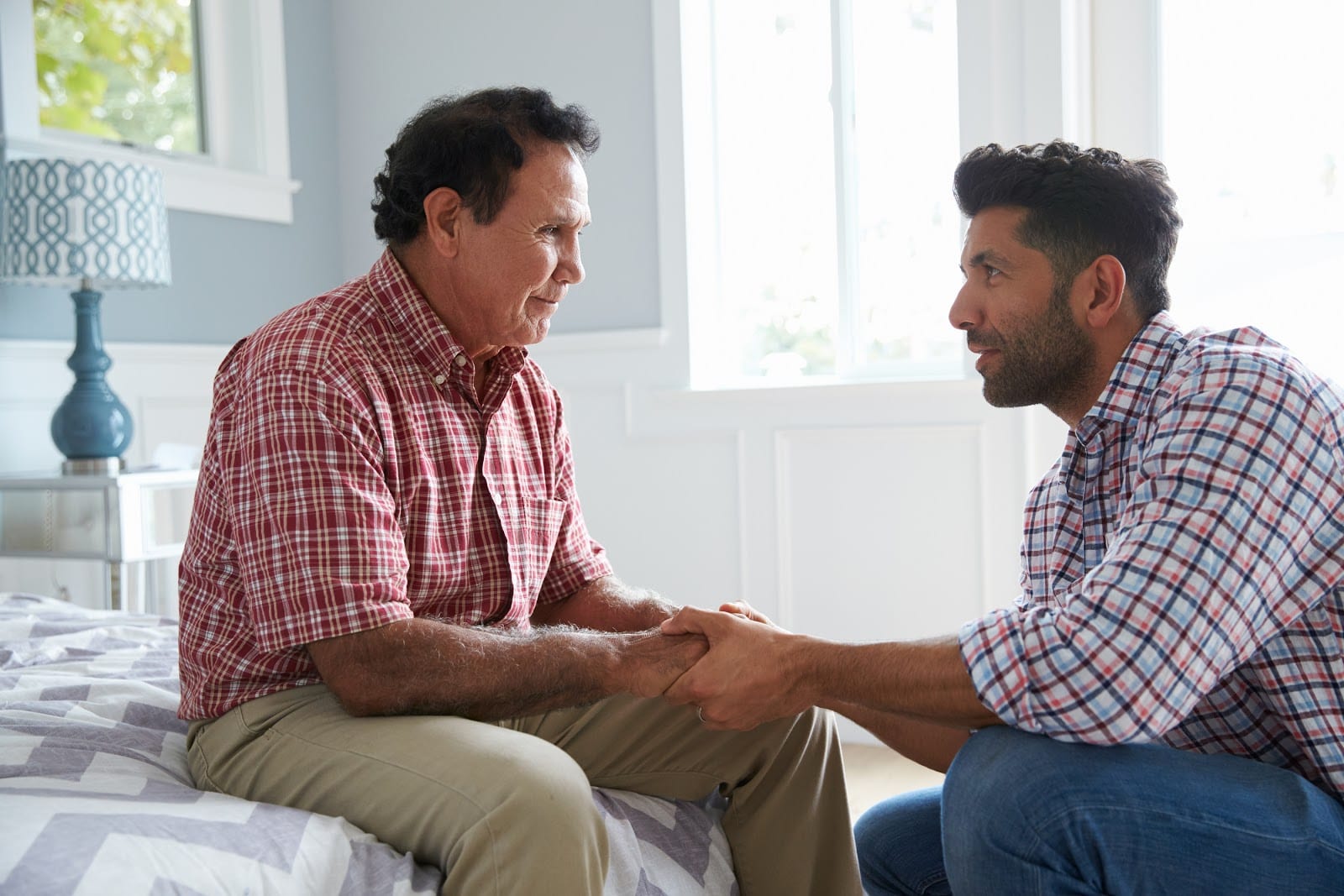“I miss him most of all when he’s sitting right in front of me.”
Alzheimer’s disease is often most painful for those closest to us. It’s hard to watch loved ones forget our name and struggle with day-to-day activities, but never lose hope. November is Alzheimer’s Awareness Month and Lehigh Center for Clinical Research is working to find tomorrow’s cures…today.
Alzheimer’s disease is a devastating progressive, degenerative disorder that results in memory loss and behavioral changes, among other symptoms. As symptoms progress, it can cause a heavy emotional toll on the people closest to the sufferer as well. Children who care for their parents must take over roles that were once their parents, such as cooking meals for them, driving them to appointments, and helping them bathe or change. And spouses watch as the individual they feel in love with and grew old with begins to change into a person they don’t recognize.
It can be challenging and exhausting to care for an individual while experiencing your own range of emotions following the diagnosis. It is normal to mourn or grieve the loss of the person you once knew, feel angry at the disease and guilty. You may even deny that the person is actually ill or attempt to normalize their behaviors before finally accepting it and learning to appreciate every moment. We outline a few suggestions below to help you cope as the primary caregiver.
Join a Support Group
As a caretaker, you may feel as if others don’t truly understand what you, or your loved one is going through after being diagnosed with Alzheimer’s disease. Joining a support group that is facilitated by trained individuals and specifically designed for adult caregivers will allow you to talk, cry, and laugh with others going through the same journey as you are. It will help you battle any lonely thoughts and feelings of isolation.
You can also learn about healthy coping techniques and tips for caregiving from those more experienced with the disease, if you’re new to providing care for someone diagnosed with Alzheimer’s disease. Click here to find a support near you.
Rely on Help
Caring for someone with Alzheimer’s disease or dementia can be stressful and emotionally draining. You may miss “normal” life and long for your routine back, which is normal. You shouldn’t feel selfish to grieve at a parent’s diagnosis and it’s important to schedule in time to care for yourself.
As the saying goes, “it takes a village,” which holds true when caring for someone with Alzheimer’s disease. Make sure to ask a trusted friend, family member, or even a hired professional to take over care for your loved one so you can have time to yourself to unwind, relax, and recharge. You cannot do it alone and it’s important to realize that and not over exert yourself trying to do so. Once burned out, you won’t be able to give adequate energy, attention, and skill that is needed to care for your loved one.
Take Time for Yourself
Use the time you have for yourself to maintain social relationships, go to the gym or enroll in meditation classes. The best thing you can do for the person you’re caring for, and what they would most likely want to see, is you keeping yourself healthy. This includes emotional, physical and mental well-being.
It’s easy to abandon your own care and your life before the diagnosis when caring for a loved one, but you risk your health and mental-wellbeing while doing so. You should still pursue the activities you previously enjoyed doing and not feel guilty or selfish when you’re not providing care.
If you’d like to include the individual you are providing care to, you can also plan activities to do together to get you both out of the house and in a different atmosphere. Spending time outdoors, whether it’s going for a drive or taking a short walk in a park, can be very therapeutic. Another activity to partake in together could be one that simulates the senses, such as playing with an animal or painting a piece of art. You’ll appreciate the time spent together and it won’t feel like caregiving.
While taking on the role as a caregiver of an individual with Alzheimer’s disease is very challenging, it is also rewarding. Your bond with the individual can deepen, you may recognize a newfound appreciation for the individual, and you may develop new friendships through support groups. But at times it can also test your patience as you try to balance providing the best care, handling your wide range of emotions, and still having time to care for yourself.
Just breathe. You’re doing great and you have the resources and a support system ready to help you. Our compassionate team at Lehigh Center for Clinical Research is here to talk about new research studies that could help. Contact us today: 610-820-0342.







